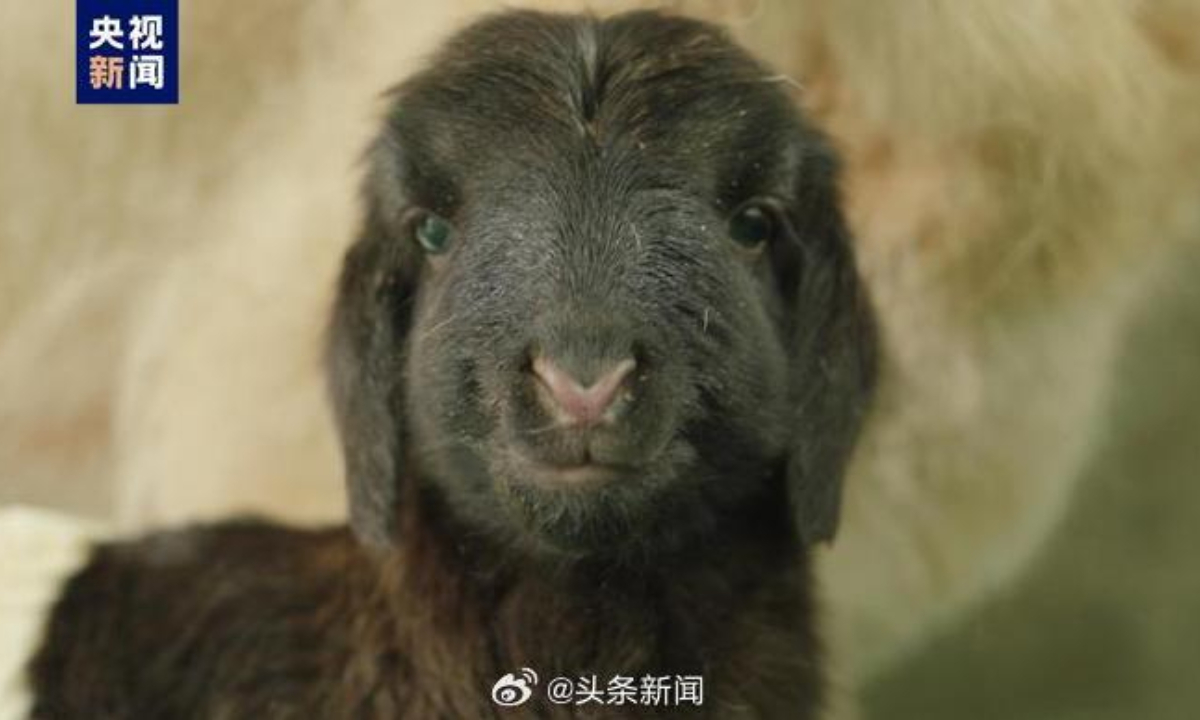
World’s first cloned Tibetan sheep is born in Northwest China’s Qinghai Province. Photo: Sina Weibo
Chinese scientists have successfully cloned the world’s first Tibetan sheep in Northwest China’s Qinghai Province, hoping to improve the breeding efficiency of the species by preserving their superior individuals.
The research team from Northwest A&F University and the animal disease prevention and control center in Xining, capital of Qinghai, have jointly cultivated a cloned Tibetan sheep, which adopted somatic cell cloning technique. This was done in a bid to improve the breeding efficiency of the species by cloning their highly productive individuals.
The clinical healthy Tibetan sheep weighs 3.4 kilograms. So far, two cloned sheep have been produced.
Sheep farming is one of the main sources of income for local farmers and herdsmen on the Qinghai-Xizang Plateau. However, the breeding efficiency of Tibetan sheep species is not high, and the utilization rate of excellent breeding ram is low, which has a great impact on the development of the industry.
The joint research team selected three excellent breeding rams and one ewe of the breed of Oula sheep, including a top-tiered ram weighing more than 200 kilograms, to produce 43 cloned embryos. After the cloned embryos were transplanted into the surrogate sheep, their pregnancy rate reached 58.1 percent at first test and 37.2 percent after 120 days. A group of lambs are expected to be born soon.
Su Jianmin, a professor from the College of Veterinary Medicine of Northwest A&F University, told the Global Times on Tuesday that somatic cell cloning technology is a method that can 100 percent completely replicate and propagate the genetic information in the top-tiered breeding livestock.
In the next step, with the established technology system including freezing semen of the Tibetan sheep, artificial insemination, in vitro production, the scientists will expand and promote the reproduction of the high-quality Tibetan sheep to boost employment and incomes of farmers and herdsmen with science and technology, according to experts from the animal disease prevention and control center in Xining.
Last month, the local government in the Southwest China’s Xizang Autonomous Region announced the
birth of the world's first cloned endangered Xizang cattle species in the region, the first time that cloned cattle were successful delivered in Southwest China.
The endangered cattle breeds Zhangmu cattle and Apeijiaza cattle, found on the Qinghai-Xizang Plateau, were also successfully bred artificially by using the somatic cell cloning technology, reports said.




